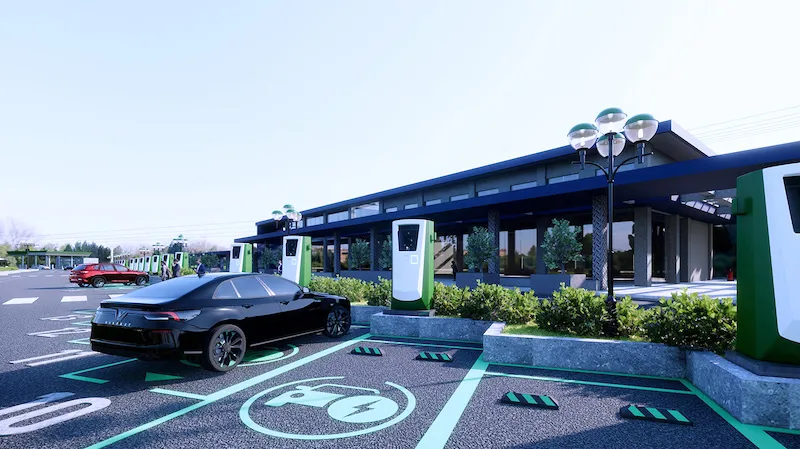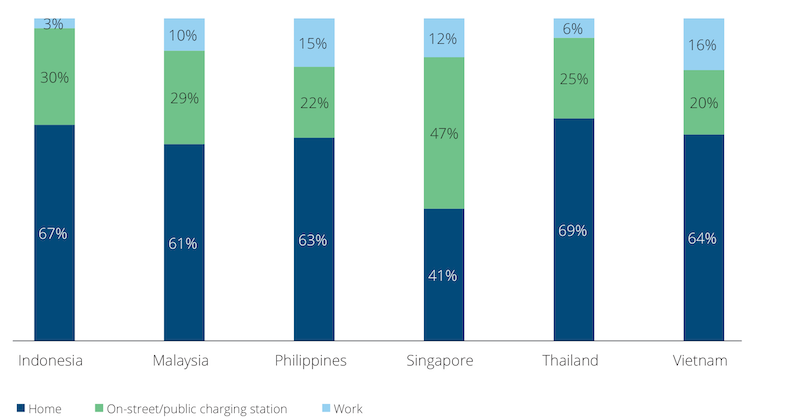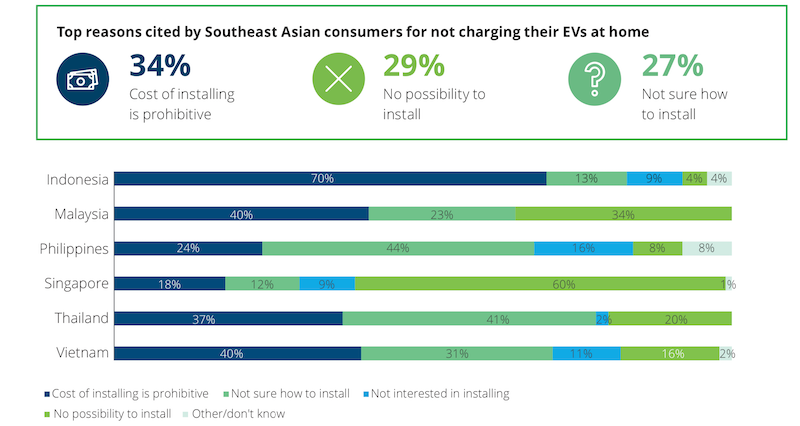Decisive factors for Vietnamese consumers to purchase electric vehicles
The lack of charging infrastructure in public places and traveling distances remain barriers to the use of electric vehicles among Vietnamese and Southeast Asian consumers.
Lower fuel costs, concerns about climate change/ emissions reduction, and a better driving experience are the top factors motivating consumers in Vietnam and other Southeast Asian countries to decide to buy an electric car.
| Charging station model for electric vehicles in Vietnam. Photo: VinFast |
This was one of the findings of the latest study on global automotive consumers conducted by the consulting firm Deloitte in six countries in Southeast Asia including Indonesia, Malaysia, the Philippines, Singapore, Thailand, and Vietnam.
In the latest survey, Deloitte pointed out that 64% of Vietnamese respondents considered lower fuel costs as the key factor that impacts the decision to acquire an electric vehicle (EV). In addition, personal health concerns also affect Vietnamese consumers’ decision to buy electric cars (with 54% of the respondents).
However, the lack of charging infrastructure in public places and distances remain barriers to the use of EVs among Southeast Asian consumers.
On average, Southeast Asian consumers expect the driving range of a fully charged battery EV to be at least 491km. Malaysia, Singapore, and Thailand are the three countries that recorded the highest level of mileage expectations while drivers in Vietnam expected less.
Most consumers in Southeast Asia, including Vietnam (with 64% of respondents) plan to charge their EVs at home. Nearly 30% of Vietnamese surveyed people choose street charging points or public charging stations and the remaining 10% choose to charge at work.
| Where do drivers want to charge their EVs. Source: Deloitte |
More than 50% of Vietnamese respondents, who intend to charge their electric vehicles at home, want to use a combination of the regular power grid and alternative power. Meanwhile, the remaining 41% want to use the regular power grid.
The study also revealed more than 40% of respondents who do not plan to charge their EVs at home said that the cost of installing a charger is prohibitive, while the remaining 31% say they cannot afford to install one.
In general, Southeast Asian consumers are hesitant to purchase EVs due to lingering concerns around the lack of public charging infrastructure. Other barriers include the cost/ price premium, safety concerns related to battery technology, and the time required to charge.
The increase in electricity prices will make regional consumers reconsider buying electric cars if the price of electricity is as high as the price of fossil fuels, which the number of Vietnamese respondents accounts for the highest percentage (71%) in Southeast Asia (where the average proportion is 53%).
Vietnam-based automaker VinFast is also setting up charging stations across Vietnam to complete its EV ecosystem. In addition to VinFast's VF e34 electric car, the first locally-produced EV in Vietnam which has been rolled, there are only some small electric cars from China or Porsche's Taycan.
However, the Vietnamese EV market is expected to be more active in the coming times as other EV models will be launched in Vietnam such as the KIA EV6 which is planned to be released by the Vietnamese distributor THACO in the next quarter of 2022.
In a meeting with the Vietnam Electricity (EVN) Northern Power Corporation in March, Nguyen Hong Nhat, a representative from a project related to VinFast's electrical infrastructure said that VinFast aims to build 3,000 charging stations with 150,000 charging ports nationwide. It is expected to be completed in the second and third quarters of 2022.
| Source: Deloitte |
The Covid-19 pandemic is having a significant impact on Southeast Asian consumers with a sizable proportion of them intending to purchase a vehicle to avoid the use of public transport.
This trend was the most evident in Vietnam, and least pronounced in Malaysia and Singapore. About 45% of Vietnamese people think that private vehicles are still the preferred transportation option in the future, while only 6% of the respondents want to travel by public transport.
Deloitte surveyed more than 26,000 consumers in 25 geographic regions between September and October 2021. The consulting firm explored various issues impacting the global automotive industry, including the development of advanced technologies, sustainability, cost expectations on new vehicles, virtual purchasing experiences, and mobility services.













